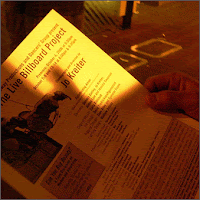ITU Conference

This week I attend the largest technology conference I have seen to date. Typically held in Geneva, the International Telecommunication Union Conference (ITU) was held in Hong Kong December 2006. Held once every 4 years, this event has drawn over 150,000 attendees from all over the world. Those who know me will understand the sheer nirvana I am experiencing in connecting with people from so many countries all discussing and understand opportunities to extend technology and improve social conditions. Very few people I spoke with in the US before the event even knew what the ITU was, including me, so I learned that the ITU is the telecommunications committee for the United Nations (UN). This morning, among a diverse and experienced group of telecommunication leaders in a panel on this first official day of the event, were Andre Smit of Cisco and Didier Philippe , President of the Micro-Enterprise Acceleration Institute in Switzerland, who is working with HP. They spoke about the conver


